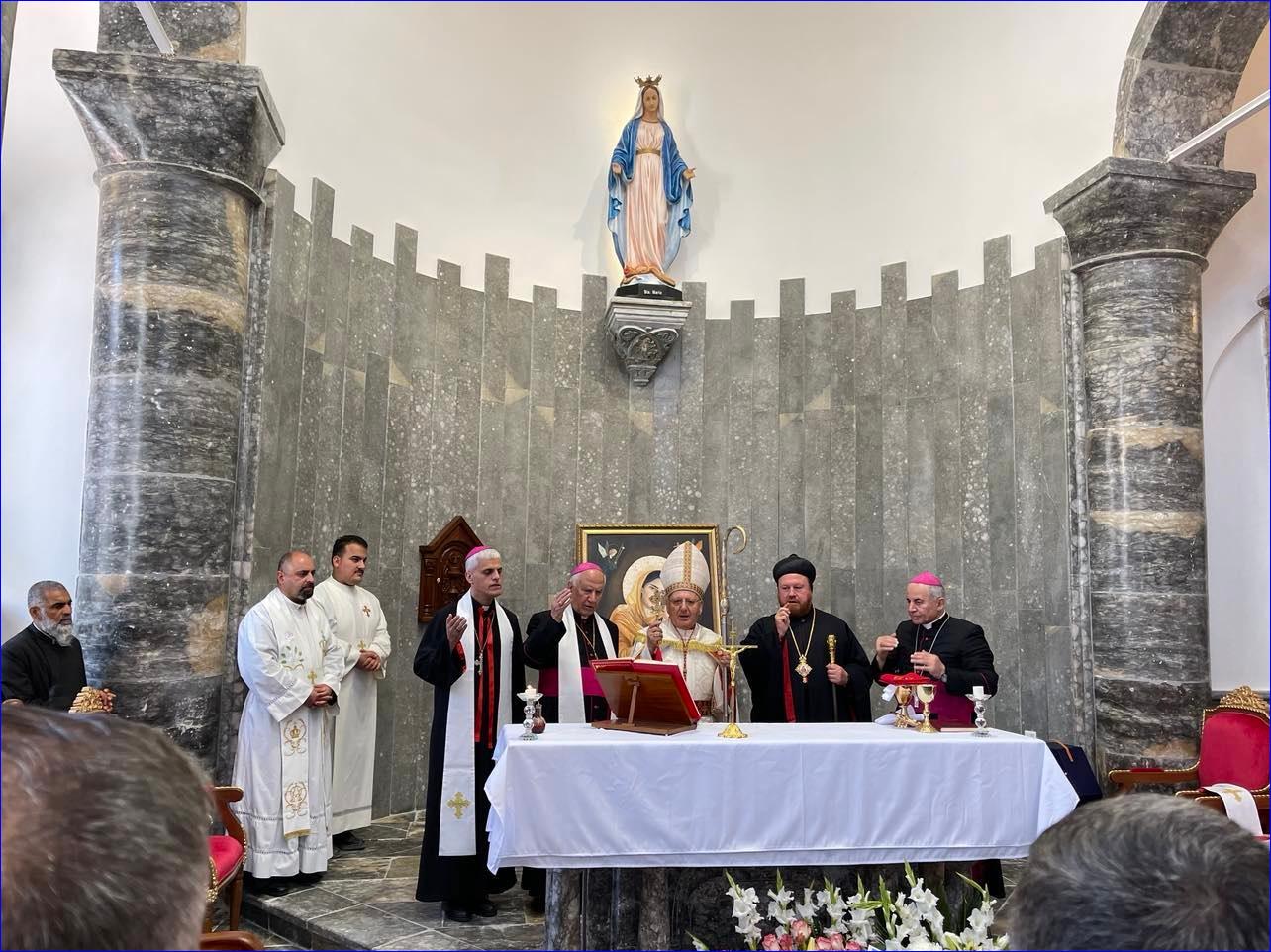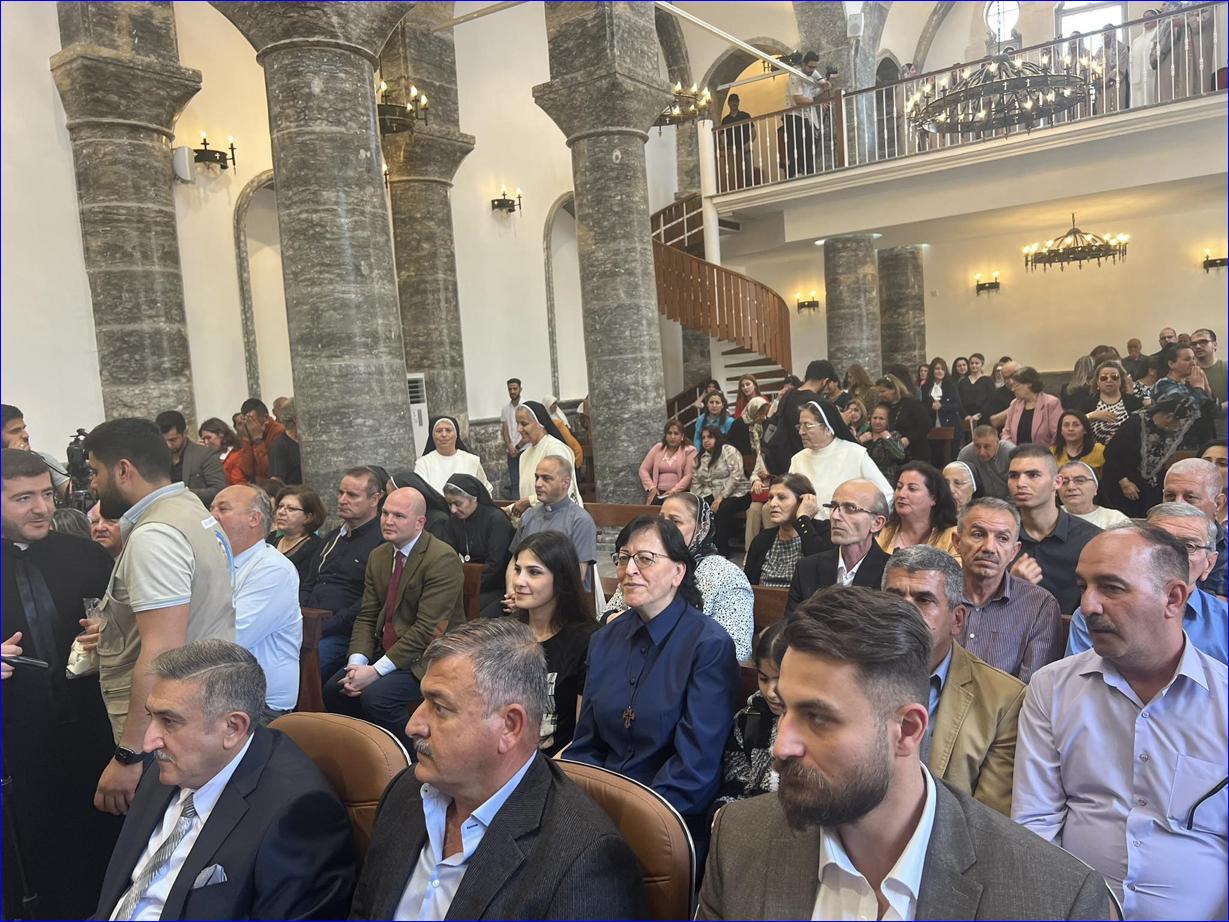


Chants, hymns, and slogans from a festive Christian community accompanied the mass for the inauguration of the Chaldean Church, 80 years of history behind it, after having become a religious police office under Isis. The celebration was attended by Christian, Muslim, Yazidi and Sabeans religious and political leaders from Mosul and the Nineveh Plain, as well as international dignitaries, including those who financed the reconstruction of the place of worship, and at least 300 worshippers. Among the ecclesiastical personalities were Bishop Nicodemus Daoud Sharaf of the Syrian Orthodox Church, Msgr. Imad Khoshaba, current Archbishop of Tehran of the Chaldeans, and Msgr. Michael Najib Michael, Archbishop of Mosul, as well as priests, nuns and religious.
"I have been waiting for this day," 74-year-old former school headmaster Ilham Abdullah tells Afp. He emphasises that he hopes that "Christian families will return and life will resume as it once was" in Mosul, home to one of the oldest communities in the world. Salim, who came to the city specifically for the mass, said that the Chaldeans "came to see their church" abandoned "when the Daesh oppressors ruined it". At the moment in the northern metropolis - the scene of Pope Francis' historic visit during his apostolic trip to Iraq in 2021 - there are other churches and monasteries being renovated, but reconstruction is slow and many have not yet returned.

In his homily, Card. Sako stressed the "pioneering" role of Christians in building Iraqi civilisation and society, culture and progress in the governorate of Mosul. That is why he said he was "sorry" for the non-participation of the current governor, whose presence would have "encouraged" Christians to return to their city "but he does not seem to care". 'Difficult circumstances,' he adds, 'threaten their existence', which is why we 'look forward with hope' to a political system 'at the service of citizens' and measures aimed at 'justice and equality' to overcome 'sectarianism, quotas and components' in a perspective of 'peace and trust'. It is necessary, he concludes, to fight corruption, the spread of arms and 'dismantle extremist ideology'.
The devastation caused by the Islamic State had emerged in March 2017 at the time of the liberation of the al-Dawasa neighbourhood at the hands of Iraqi forces who, while searching the area, found a Christian church used as a base by the militiamen. It was indeed Um al-Mauna (Our Lady of Perpetual Help) which, at that time, no longer bore any sign of its past because the crucifix and statues had been destroyed, replaced by Daesh (Arabic acronym for Isis) posters and symbols. The sign above the door, 'Chaldean Catholic Church', along with the grey marble altar testify to the building's original function, while a ban on entry was posted on the walls.
Posters on the marble columns of the once Christian place of worship illustrated life in the time of Isis. One of them listed the 14 rules for Mosul, including the obligation for women to dress modestly and show themselves in public only 'if necessary'. On the debris-covered floor, a leaflet was found listing the corporal punishments provided (with explanatory pictures) for those guilty of theft, alcohol consumption, adultery and homosexuality. The Islamic State had conquered the metropolis in June 2014, forcing Christians to choose between converting to Islam, paying a special tax, fleeing or being killed. A few weeks later they devastated Qaraqosh in the Nineveh Plain, forcing most of the 120,000 Christians to flee.

or register to post a comment.